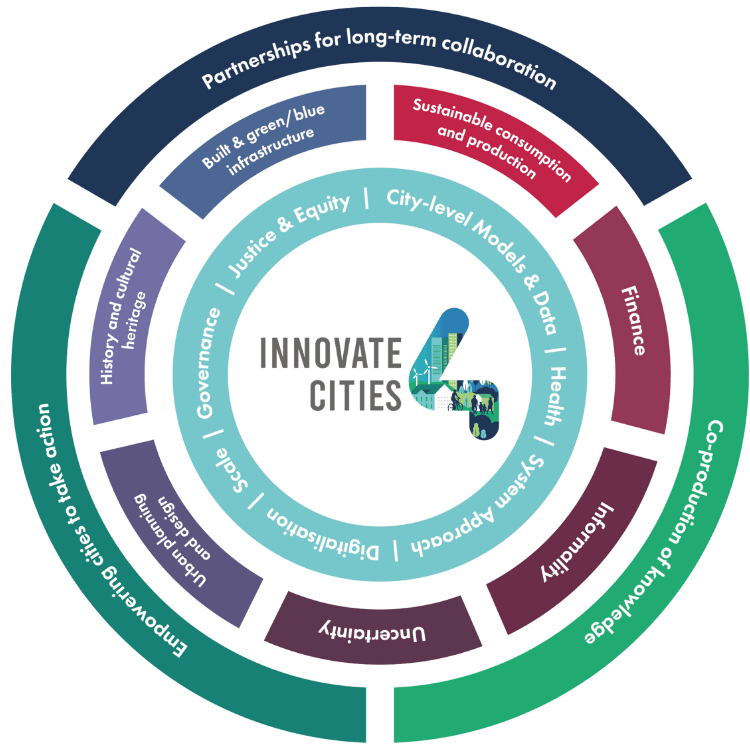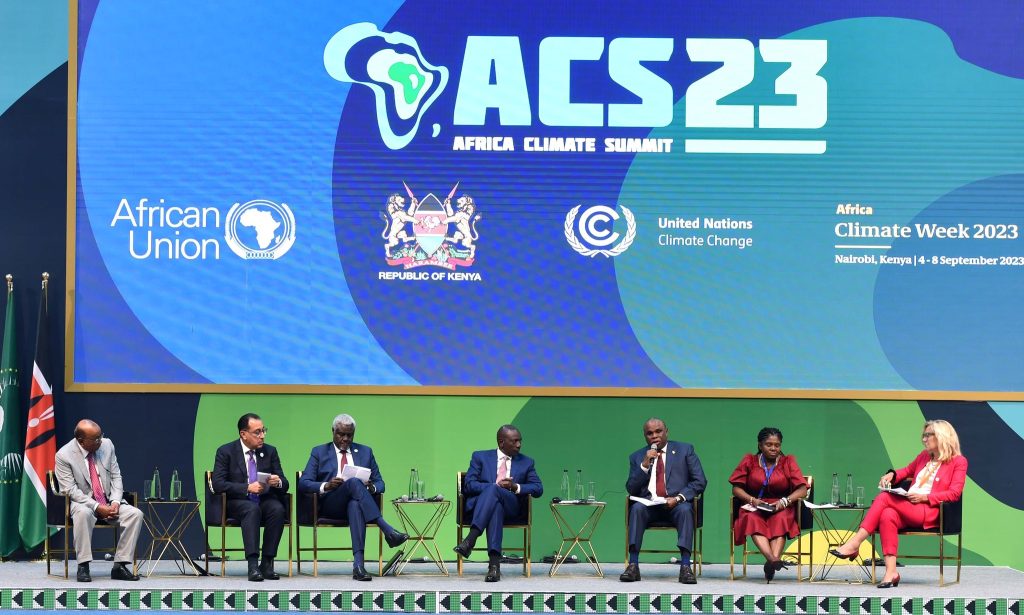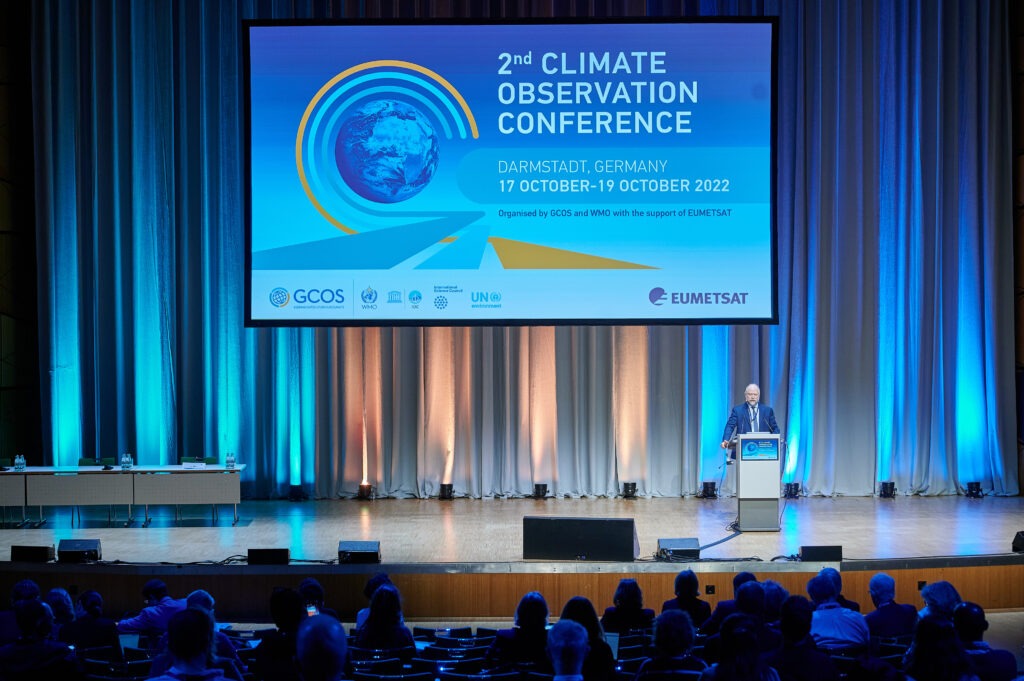The MEASURES Project
Low- and middle-income countries are acutely vulnerable to climate change. Their vulnerability is further exacerbated by local socio-techno-economic challenges that can hinder resilient development, such as the presence of a large informal sector and power sector inefficiencies. Most energy system optimization models fail to address such complexities, despite their prevalence in the Global South.
The MEASURES project aims to advance energy modeling methods by representing socio-techno-economic, climate change impact, and resilience factors in urban energy models for the Global South and beyond. We investigate the following specific issues: economic imperfections (including the informal economy and currency depreciation), suppressed energy demand, climate change impacts (including rising temperatures, precipitation changes, and climate-related migration), and power sector challenges. We develop approaches to consider these factors in models to improve energy and climate resilience. Our focus is on the case study of Ghana and the city of Accra, but our methods are transferable to other scopes and scales.
Research Outputs
Our publications, work in progess, and models and data are provided below with open-access links. Please check back periodically for updates.
The impacts of the informal economy, climate migration, and rising temperatures on energy system planning
This study investigates how the informal economy, climate migration, and temperature changes affect energy demand and long-term urban energy planning in Accra, Ghana. Energy demand is significantly impacted by climate-induced migration and rising temperatures, potentially hindering sustainability targets. Photovoltaics, waste energy conversion, and transportation electrification are critical solution pathways but require substantial grid upgrades. The study highlights the importance of considering these factors in energy planning, especially in countries vulnerable to climate change, like Ghana.
Resilient energy system analysis and planning using optimization models
This study integrates resilience analysis into long-term energy system optimization models using a multi-objective approach. Various resilience and sustainability metrics are combined into a composite resilience metric, which is optimized and compared to cost and emission objectives. The method is tested on two municipal case studies in Ghana and China, demonstrating how energy systems designed with a resilience objective can better adapt to shocks and reduce damage costs compared to conventional approaches.
Modelling the informal sector and energy consumption in Ghana
The informal sector, characterized by unrecorded economic activities, significantly impacts national energy demand in Sub-Saharan Africa. Using autoregressive distributed lag estimation, we find an adverse effect of the informal sector on energy consumption. The informal sector influences energy consumption through education, employment, and foreign direct investment. These findings underscore the need for policy considerations.
Assessment of Shared Socioeconomic Pathway (SSP) climate scenarios and its impacts on the Greater Accra region
This study examines the escalating effects of climate change in the Greater Accra region, utilizing Regional Climate Models under the latest IPCC scenarios. It predicts a reduction and shift in precipitation intensity and a significant increase in maximum and minimum temperatures across different scenarios. These changes have wide-ranging impacts, from agriculture to power generation. The findings offer valuable insights for policymaking concerning Sustainable Development Goals (SDGs) 11 and 13.
Quantifying the narratives: extreme climate projections under the Shared Socioeconomic Pathway scenarios in Greater Accra
Recently published! (July 2024)
This study examines the increasing susceptibility of the Greater Accra region to extreme climate events (ECEs) such as droughts, floods, and heatwaves. Using CMIP6 models, it forecasts intensifying ECEs, especially under the SSP5 scenario. We predict heightened drought severity and increased flood and heatwave intensity across the region. The findings aim to inform climate policies related to Sustainable Development Goals (SDGs) 11 and 13.
Depreciating currency impacts on local-scale energy system planning: the case study of Accra, Ghana
Published! May 2024
This study uses an optimization model to investigate the impact of local currency depreciation on long-term sustainable energy planning. Assessing various depreciation scenarios reveals significant effects on renewable energy technology investments, with potential reductions of up to 80% in solar photovoltaic (PV) deployment. Consequently, CO2 emissions increase by up to 65%, and total system costs triple in the worst-case scenario. However, waste energy power plants emerge as a resilient investment option. The findings highlight the importance of incorporating currency depreciation into energy planning processes, especially in developing economies, to ensure robust and sustainable energy systems.
Strengthening energy system resilience planning under uncertainty by minimizing regret
Recently published! (August 2024)
This study strengthens energy system resilience planning under uncertainty using optimization models by applying regret decision theory. Considered uncertainties include volatile fossil fuel supply, volatile hydropower generation under climate change, rising demand due to climate change-driven rural-urban migration and global warming, unplanned power outages due to increasing natural disasters, and currency depreciation. The method offers energy planners a pragmatic approach to improve resilience in long-term planning amidst uncertainty.
Estimating and forecasting suppressed electricity demand in Ghana under climate change, the informal economy and sector inefficiencies
Recently published! (August 2024)
This study investigates suppressed demand in Ghana, focusing on influential factors like the informal economy, rising temperatures due to climate change, and electricity transmission losses. Results suggest that informal sector growth and transmission losses contribute to suppressed demand, with rising temperatures also playing a significant role. Forecasting indicates continued growth in suppressed demand through 2050, highlighting the need for infrastructure upgrades, institutional reforms, and investments in green and cooling infrastructure to address these challenges effectively.
Impact of drought on hydropower generation in the volta river basin and future projections under different climate and development pathways
Just published! (December 2024)
This study assesses how future droughts in Ghana’s Volta Basin could affect hydropower generation and electricity prices. With hydropower supplying 35% of the nation’s electricity, increased drought risks due to climate change raise concerns. Findings indicate more frequent hydropower deficits and rising electricity prices across scenarios. The study underscores the need to diversify energy sources and implement climate adaptation measures for resilience.
Flood risk assessment under the Shared Socioeconomic Pathways: A case of electricity bulk supply points in Greater Accra, Ghana
Recently published! (October 2024)
This study assesses flood vulnerability and risk at Bulk Supply Points (BSPs) in the Greater Accra region, employing a Frequency Ratio (FR) model. It finds increasing vulnerability under different Shared Socioeconomic Pathway (SSP) scenarios, particularly in low-lying and coastal areas. The study emphasizes the urgency of adaptive measures to mitigate escalating flood risks and recommends prioritizing flood defenses and adaptive measures at vulnerable BSPs, including elevation or relocation of components, construction of floodwalls, and employing flood monitoring systems. The findings supports Ghana’s efforts in achieving Sustainable Development Goals (SDGs) 11 and 13.
Battery-electric vehicle penetration feasibility study for Accra, Ghana
Work in progress
This study assesses how increased EV charging loads affect power stability and reliability in Accra. It aims to determine feasible rates for EV penetration given grid infrastructure and planned upgrades.
Events & News
The MEASURES team has presented its work at the international, pan-African, and local events listed below to promote knowledge transfer and engage in multidisciplinary dialogue.
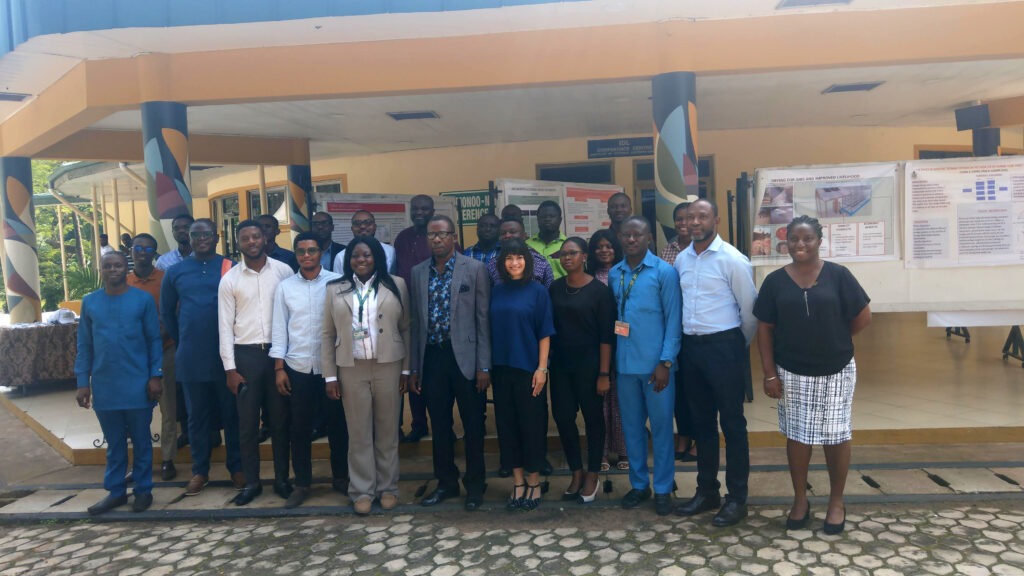
In the News
International Urban Planning Knowledge Transfer Events
African Knowledge Transfer Events
- Africa Climate Summit and Africa Climate Week (ACW),
2023 (Nairobi, Kenya) - West African Sustainable Engineering Network for Development (WASEND) 6th Seminar, 2023
- West African Clean Energy & Environment Trade Fair & Conference (WACEE), 2023 (Accra, Ghana)
International Conferences
- Innovate4Cities Conference, 2024 (Montreal, Canada)
- International Energy Workshop (IEW), 2024 (Bonn, Germany)
- 8th International Conference on Climate Change (ICCC),
2024 (Colombo, Sri Lanka) - International Energy Workshop (IEW), 2023 (Golden, USA)
- Energy and Climate Transformations: 3rd International Conference on Energy Research and Social Science (ERSS), 2022 (Manchester, UK)
- Global Climate Observing System (GCOS) 2nd Climate Observation Conference, 2022 (Darmstadt, Germany)
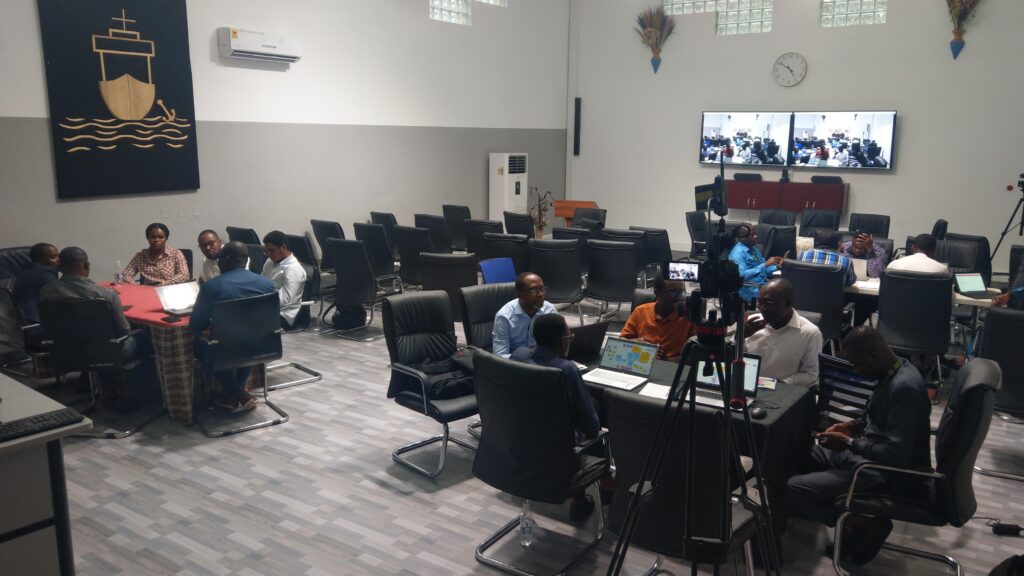
Project Workshops
- MEASURES Project 1st Conference & Workshop, 2022
(KNUST, Kumasi, Ghana) - MEASURES Project 2nd Workshop, 2023 (Empa, Dübendorf, Switzerland)
“We aim to improve energy planning models and decision-making processes to support cities and countries in developing more effective, sustainable, and resilient energy strategies under the threat of climate change.”
Dr. Mashael Yazdanie
Project Leader, Empa
Stock video footage provided by Videvo
Designed with WordPress
